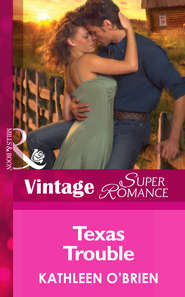По всем вопросам обращайтесь на: info@litportal.ru
(©) 2003-2025.
✖
The Cost of Silence
Автор
Год написания книги
2019
Настройки чтения
Размер шрифта
Высота строк
Поля
He laughed. “She hasn’t got enough starch?”
Nana Lina had said this about the brothers’ girlfriends so often it had become the code word for her disapproval. Conversely, when she said a woman did have starch, they knew it meant a world of respect. The first time they’d heard her say it, she’d been talking about their own mother. For in-laws, those two women had had an amazingly solid and close relationship.
“No, actually, she hasn’t,” Nana Lina said tartly. “She was probably born with starch. You can glimpse it, sometimes, underneath the silliness and the insecurity. But marrying Victor was probably the worst thing she could do. He valued her looks, but he didn’t value the qualities she possessed that were far more worthwhile. Consequently, she lost respect for them, too. So all she’s left with is a pretty face, which won’t hold anyone up in a crisis.”
Actually, Red thought that was a perceptive evaluation. And Nana Lina should know. She was still one of the most beautiful women he knew, with her silky waves of gorgeous silver hair and her lively, intelligent blue eyes set in a heart-shaped face. In pictures, he’d seen what a stunner she’d been as a young woman.
But she’d never let vanity control her. She worked as hard as any of the Malones, male or female, young or old. He’d seen her mussed and covered in flour, pulling all-nighters in the kitchen before Diamante took off enough to pay someone else to do all that. He’d seen her sweating and splashed with paint, or potting soil or sawdust. And she always looked amazing, vibrant and intelligent and in love with her life.
“I wish you could adopt Marianne,” he said. “I bet you could straighten her out in no time.”
Nana Lina laughed. “I’ve got my hands full, I’m afraid. But you don’t need me. You know how to help her. Tell her to spend less time picking out earrings and more time being genuinely productive. Get a job. Or, if that’s beneath a Wigham, she should do a Google search on the word volunteer. Or charity.”
To Red’s surprise, Nana Lina’s voice sounded sharper than usual. He gave her a more careful look. Was she a little pale? Just the other day, Colby had said he thought she looked tired.
“Okay. I’ll do that.” He tried to sound casual. “So, enough about Marianne. How are things going for you? Everything okay?”
She frowned and shook her head. “Everything is fine,” she said, “except that people keep coming in and distracting me, so that I’m never going to get this report analyzed. Don’t you have somewhere to be? Some property to buy, some widow to console?”
He stood, smiling. “Yes, ma’am,” he said. But he made a mental note to ask Colby what he thought. No way they were going to let Nana Lina get sick, even if it meant they had to get out the switch.
WHEN RED GOT OUTSIDE, squinting against the bright sun after hours in the artificial light, he saw a rectangular piece of paper hooked under his windshield wiper, and his sour mood turned even nastier. God. A ticket?
But it wasn’t. When he yanked it out, the wiper bouncing, he saw that it was a flyer for the Splash Camp kickoff, which was being held today at Baker Country Day School in Russian Hill.
Marianne Wigham must have put it there. She was volunteering at the kickoff. Damn it. How could he have forgotten? This was the first time she’d done anything official or public since Victor’s death. And since by now everyone at the Baker School knew about her son’s problems, this was bound to be a stressful day.
In fact, though she hadn’t exactly asked Red to come, she’d made very sure he knew exactly what time her shift was, and which tent she’d be staffing. She clearly hoped he would show up for moral support.
Not a far-fetched hope. For the past two months, he’d stopped by at least three times a week. He’d brought flowers and food. He’d visited Dylan in rehab. He’d offered a shoulder to cry on, and a hand to hold.
And now, because of the mess with Allison York, he’d almost let Marianne down on this one.
He looked at his watch. Just three-fifteen. If he hurried, he’d be fine.
The traffic was with him, so he made it to the school with time to spare. He parked in a space left by some early departure, then climbed the emerald-green lawn toward the solid Normanesque buildings that housed the school.
Only the best of the best got into Baker. In spite of his crazy-high IQ and his good address, Dylan almost hadn’t made it. Victor’s family tree had the right kind of roots, but Marianne was officially a nobody. She’d been a nineteen-year-old cosmetics model when Victor married her, which made the older Baker moms shiver politely and made the younger ones jealous as hell.
She’d had an extra strike against her simply because she was not Erna, Victor’s beloved first wife, who had succumbed to a heart attack.
The grounds looked serene, daffodils swaying in the breeze and birds wheeling high in the blue sky. Most of the action was out back, where the Olympic-size swimming pool and field houses were found. But a few hospitality tents had been set up out front, and Marianne was in the one farthest west, out where the school grounds began to slope toward a thick, shadowy greensward.
It wasn’t an accident, of course, them putting her in the hinterlands. Red felt a surge of annoyance at the snobs who couldn’t see that she was better than all of them.
Or maybe they did see it. Maybe that was, in the end, Marianne’s unforgivable sin.
He found the tent easily. She was apparently dispensing water bottles, though hardly anyone had ventured out this far. Just a crying little kid who had clearly been brought out here for a time-out, and a couple of late-teens eyeing the woods as if they needed a few minutes alone.
“Hey, there,” he said as he got close enough to be heard. “Word is this booth has the best water in town.”
Fiddling with a cooler, she had her back to him and hadn’t seen him approach. She wore a crisp white dress that looked like a long shirt. It was belted around her tiny waist with some kind of turquoise cloth. Her hair lay on her shoulders like a yard of the most expensive gold satin. She always looked fantastic, though he could have told her she’d score more points if, just once, she showed up looking frumpy.
The minute she turned her face to him, he knew it had been a rough afternoon.
“Hi,” she said, and he heard the relief that made the syllable heavy and thick. Her round blue eyes were red-rimmed, as if she’d been crying. “I thought you might not be able to make it.”
“I almost didn’t,” he admitted, finding it impossible to lie to those eyes. “I’ve had a junky couple of days, and I almost forgot.”
“That’s okay,” she said hurriedly.
“No, it’s not,” he said. He touched her shoulder to stop the apologies he knew were coming. “But I’m here now. Tell me about it.”
She opened her mouth, that perfect rosebud that had sold a million tubes of lipstick. But then she shut it again and shook her head. “It’s nothing. Tell me about your junky days. What went wrong?”
Oh, no. That was one conversation he wasn’t going to have.
“Junky days are best forgotten,” he said. He came around the side of the booth and picked up the cooler of water bottles. He plopped it on the cloth-covered table and then propped open the lid. In the unlikely event that anyone showed up thirsty, they could help themselves.
“Come with me,” he said. “You need to get off your feet.”
He would have taken her hand, except that somewhere, no doubt, a snobby Baker School mother’s radar was twitching, and within seconds the grapevine would be humming with the gossip. No one cared that he and Marianne had been friends for fifteen years, or that the two of them had lost someone very dear.
Hell, even Nana Lina had wondered how far his stalwart-friend, shoulder-to-cry-on role might take him.
So he led her to a nearby bench. He swept a few leaves and strawberry crepe myrtle petals from its stony surface, and then they both sat.
For a few seconds, she twisted the fringed ends of her blue cloth belt in her lap and wouldn’t meet his gaze. She sniffed a couple of times, and he knew she was trying to pull herself together.
“So,” he observed mildly. “You look pretty done in. I hope you aren’t letting the snarling blue-blood bitches get you down.”
As he’d anticipated, the straightforward approach surprised her, and actually made her smile. “No,” she said. Then she shrugged. “Not much, anyhow. Maybe a little.”
He shook his head. That was the difference between the two of them. They both failed the sniff test when the social bloodhounds came around. Marianne cringed and tried to hide her background—the foster parents and the GED and the self-made career.
Red, on the other hand, was irrepressibly proud of being an immigrant’s grandson. In fact, sometimes, when he knew he was going to one of the snobs’ black-tie events, he’d hang out in the Diamante kitchens for a while so he would delicately stink of pepperoni. He loved watching the snobs flare their nostrils a bit, then try to pretend they hadn’t noticed.
“To hell with them,” he said. He glanced at the school. The late-afternoon sun was intense and pinkish-gold behind the columns, and the granite twinkled. Pretty, but he knew what went on in there.
“You know,” he said without thinking, “it might do Dylan a world of good to get out of this place. Go to a real school for a while. Meet real people, with real problems.”
“Don’t say that,” she said. “You know how important it was to Victor that Dylan get in.”
Red nodded. He hadn’t understood it, but he knew it was true.
“That’s part of what went wrong today, actually. When I arrived, Gwen Anderton told me the board had scheduled a hearing about the…the party. Dylan’s party.”
Crap. Red pulled out his BlackBerry. This was one date he wasn’t going to let himself forget. She couldn’t possibly face down these barracudas, not without Victor. She had tried so hard to make her husband proud, to fit in his world. But the hopeless struggle to live up to someone else’s superficial expectations had left her with a completely irrational sense of inferiority, as if these people had the right to pass judgment over her.











